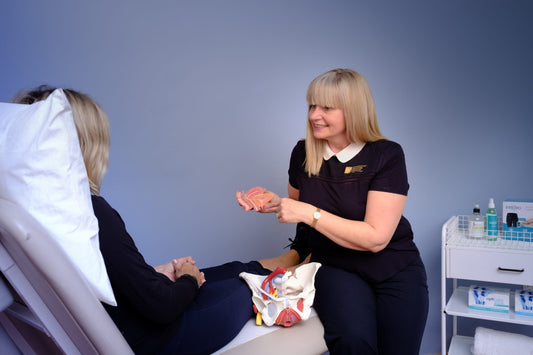In a fast-paced world of expanding work hours, productivity shaming, and an ‘always on’ culture, burnout is commonplace —but there are ways to recover from burnout if you’re finding yourself at the end of your tether.
Appearing ‘busy’ at all times is now seen as a positive, and those juggling many tasks at once are admired. But considering we’re now so much more aware of our wellbeing and mental health (not to mention more and more employers offer support programmes), why are we still experiencing such high levels of burnout?
Just what is burnout?
Burnout is essentially a state of physical, emotional and mental exhaustion. The World Health Organisation has defined it as “chronic workplace stress that has not been successfully managed”. It is increasingly seen as a medically-recognised condition.
According to a study conducted by the VHI in 2018, 67% of corporate workers said they need to take more care of their mental health, and one in five felt extremely or very stressed.
If not managed, this repeated stress can quickly turn into burnout.
Symptoms of burnout
As with all conditions, the symptoms of burnout can vary from person to person. Commonly, people with burnout report:
- Exhaustion
- Inability to cope
- Resentment
- Lack of motivation
- Impatience
Mental health will take a knocking too. Common signs include feelings of:
- Stress
- Isolation
- Emptiness
Physically, you may experience:
- Headaches
- Stomach aches
- Intestinal issues
- Insomnia
How to recover from burnout
The good news is that it is preventable and can be treated by implementing some stress-reducing habits.
Below, we’ve included seven recommendations that can help keep burnout at bay.
End the day on a positive note
We are told regularly about how important it is to start your day right. Rise and shine, eat a good healthy breakfast, but how do you end your day?
Ensuring that you allocate time to unwind and de-stress from your day is just as important as how you start it. Work on an end-of-day routine that signals that you’re logging off. This could be:
- Calling a friend or family member
- Going for a walk
- Talking to your partner, kids, or pets
- Taking a bath or shower
Don’t talk down to yourself
How we talk to ourselves can significantly impact our mood and self-esteem. When we feel stressed or burned out, our gut reaction is often to lash out at ourselves.
- ‘I can’t do this’
- ‘Why can’t I be like them’
- ‘I'm lazy and useless’
- I’m not good enough’
- ‘I shouldn’t be in this job’
We’ve all been there. But if you had a friend feeling stressed, tired, and worn-out, you wouldn’t speak to them in such harsh tones.
Often putting ourselves down is an unhelpful habit – acknowledge it when it happens and then stop your mind spiralling. Replace negative put-downs with more uplifting and positive slogans and practice daily saying those to yourself.
Remember to breathe
Surprisingly, many of us experience interrupted breathing daily due to rising anxiety levels.
This is because our breathing becomes faster during the stress response to distribute oxygen-rich blood quickly around our body.
To help calm your nervous system, aim to take a few minutes each day to focus on your breathing, practice mindfulness or try out a few simple Yoga poses.
Controlled breathing increases the supply of oxygen to your brain and stimulates the nervous system, promoting a sense of calm. Use an app to help you get on top of your breathing as needed.
Look after yourself – the basics
Adults need a reminder to take care of themselves too. That means:
- Eat regularly: Don’t skip meals and try and include stress-reducing foods such as fatty fish, eggs, chamomile, and nuts into your diet.
- Sleep well: The key to great sleep is to make sure to start to unwind a few hours before bedtime. Avoid using your phone or laptop at least two hours before you go to sleep. Remember that alcohol will also disrupt sleep patterns.
- Hydrate: How many glasses of water have you had today? If it is anything less than eight, the chances are that you are dehydrated. Dehydration can lead to stress, and stress can lead to dehydration. It's a vicious circle.
Exercise
Exercise is a fantastic stress reducer and is just as powerful for our brains as anti-depressants.
It can be challenging to get motivated when you feel stressed or down, but start by putting on your runners and giving yourself 10 minutes to run around your local area. Alternatively, do an at-home class or dance lesson. The most important thing is to get going in some capacity – and then build from there.
By reserving time to move your body every day, you can reduce your stress hormones, stimulate the production of endorphins and promote an overall feeling of relaxation.
Learn to say no
Women are particularly likely to want to people-please. Volunteering, helping out, chipping in; looking after partners, children, parents, and neighbours.
It can be overwhelming.
Learning to say no is difficult to master overnight, but it is something to work on. To get started, we suggest the following:
- Take stock and make a list of the stressful things in your life. You can’t tackle what you don’t know!
- Consider how you can delegate or share out tasks to reduce pressure. Don’t assume you’re the only one who can shoulder additional responsibility.
- Remember that you cannot be everything to everyone. Prioritise
Seek Support
If you feel that your stress or anxiety is starting to become too much, make sure to seek additional support.
Speak to a friend, family member, or loved one. Reach out to your GP or seek support from a therapist. Tell your employer that you’re struggling but are working on the following steps to improve your wellbeing.
See one of your friends struggling? See our tips on how to champion other women to help them feel better!













